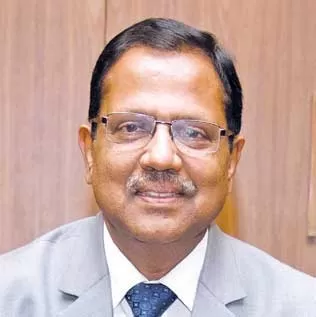The building construction industry is a complex ecosystem characterised
by a multitude of interconnected activities. Effective cost control and coordination are essential for project success, minimising risks, and maximising profitability. At our organisation,
cost control is managed as an independent function—Commercial and MIS—to ensure cost-effectiveness in project management. This independent role is present at projects, regional offices, and the corporate office.
Challenges faced by
general contractors
The Indian building construction industry presents unique challenges for general contractors, adding layers of complexity and dynamism. Economic volatility, characterised by fluctuating material prices, labour costs, and project financing, is a constant concern. Additionally, the complex regulatory framework, which includes obtaining permits, approvals and compliance, can lead to delays and increased costs. Labour shortages, particularly in specialised trades, can affect productivity and increase labour costs. Hence, effective cost control involves meticulous planning, monitoring, and management throughout the project lifecycle.
Cost control strategies
We believe in taking a proactive approach to address these challenges. Our well-defined processes, practices, and systems have evolved by incorporating best practices and lessons learned. Our use of SAP as our ERP system, with various customised checks built into it, ensures better control.
We believe that cost control must be exercised before any commitment is made. To do otherwise turns cost control into mere monitoring. The emphasis is on positive cost control rather than passive monitoring. Comprehensive budgeting and cost estimation are crucial for accurate financial planning. Project costs are better managed by preparing detailed estimates based on design drawings, specifications, and market rates, identifying potential risks, and allocating contingency funds. The budget and cost estimations are prepared, reviewed, and approved on SAP, providing enhanced visibility and control over costs.
In SP E&C, tender estimates are based on various techniques, such as historic data or approximate quantities. Major projects often have unique elements for which there is no relevant historic data. In these cases, we analyse the project in as many individual work sections as possible, preparing indicative quantities and considering the necessary resources. During
this stage, we rely on our specialist subcontractors to provide
reliable cost estimates for specialised disciplines.
With standardisation and automation in budgeting and estimation, the commercial team gains additional time for value engineering. The operations, procurement, and commercial teams explore alternative materials, methods, or designs to reduce costs without compromising quality.
Effective change management is equally crucial for controlling costs in construction projects. Establishing clear procedures and an approval matrix for managing changes in project scope, design, or specifications helps mitigate the impact of changes on the overall budget. Evaluating potential cost and schedule implications of proposed changes allows us to make better forecasts, minimising the financial impact.
Risk management is another critical aspect of cost control. Identifying potential risks, such as price fluctuations, regulatory delays, operational issues, or supply chain disruptions, is essential. By assessing the likelihood and impact of each risk through an established Enterprise Risk Management (ERM) process involving all internal stakeholders, we safeguard our interests with a risk mitigation plan for most cases.
At SP E&C, we use risk registers as a key control document. The risk register lists all identified risks, their analysis results, and the status of each risk. It is continuously updated and reviewed throughout the project.
Procurement and contract management also play a significant role in cost control. Competitive bidding processes help secure the best value for materials and services. Negotiating clear and enforceable contractual terms, including fair payment terms, protects the project's interests and maintains good relationships with subcontractors and suppliers.
Technology for cost control
Building Information Modelling (BIM) is a powerful tool for coordination in construction projects. By providing a common data environment (CDE) for managing project information, BIM helps identify and resolve potential clashes between different trades before construction begins. Additionally, BIM creates virtual models of the project, allowing stakeholders to visualise design intent and identify potential issues.
We believe in leveraging technology to enhance our cost estimates and billing. We are integrating BIM and SAP to ensure field data and quantities flow into SAP for billing and cost control. The extensive integration between Autodesk Construction Cloud and SAP at a BOQ level is being piloted at some projects, automating manual tasks and reducing efforts by 30 per cent. Unifying the two systems presents a significant opportunity for cost data analytics.
Preparing budgets and P&L statements, as well as fundamental analysis, is being automated in SAP. This automation provides the Commercial team more time to focus on analysis and forecasting, adding significant value to the business. Analytics and business intelligence enable decision-makers at different levels to make more effective, informed decisions.
Effective coordination
Effective coordination is essential for both cost control and successful project delivery. We believe in a proactive approach with all project stakeholders to ensure a win-win situation.
Effective communication is crucial for successful coordination. Regular meetings among project stakeholders facilitate discussions, address issues, and inform decisions. Clear communication channels should be established to ensure smooth information flow within the project team. Maintaining detailed documentation of project decisions, changes, and communications also improves coordination and accountability.
We have centralised all data on costs, vendor management and finance in SAP, serving as a repository for analysis.
Cost control and coordination are critical for the success of building construction projects in India. General contractors in this dynamic market must navigate economic volatility, regulatory hurdles, infrastructure deficiencies, labor shortages, and supply chain disruptions. By implementing effective cost control and coordination strategies, general contractors can mitigate risks, optimise costs, and deliver projects on time and within budget.
About the author
Akhil Gupta, CEO and Executive Director, Engineering & Construction division, Shapoorji Pallonji and Company, joined the group in 2004. Prior to this, he was Executive Director (Operations) and Whole-time Member of the Board at AFCONS. He led several large and prestigious projects and spearheaded significant growth of the business line, in India, South Asia, Africa and the Middle East.


















